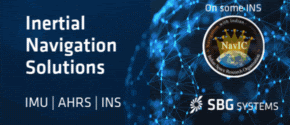| LBS News | |
LBS
|
||||||||||
SatNav in JV with AND
SatNav Technologies has announced plans to set up a Joint Venture based on shared vision and complementary business opportunities. From an India perspective, the deal will give SatNav access to the best mapping technologies in the world and upgrade their Indian map IP in line with the standards followed worldwide. It will also give SatNav access to global markets and large clients that are already serviced by AND. SatNav’s map data of India is exhaustive, covering over 1000 cities and millions of point of interest apart from a comprehensive highway network.
www.satguide.in
Microsoft’s Skype acquisition
Microsoft agreed to buy Internet phone company Skype Technologies SA for $8.5 billion in cash. The deal is subject to regulatory approval. Microsoft plans to integrate Skype’s functions to its Xbox and Kinect game consoles, outlook email program, and Windows smart phones but will continue to support it on other software platforms.
pr@abiresearch.com.
The installed base of fleet management systems will reach 6.1 million units in the Americas by 2015
According to a new research report from the analyst firm Berg Insight, the number of fleet management systems deployed in commercial vehicle fleets in North America was 2.1 million in Q4-2010. Growing at a compound annual growth rate (CAGR) of 12.6 percent, this number is expected to reach 3.8 million by 2015. In Latin America, the number of installed fleet management systems is expected to increase from 0.9 million in Q4-2010, growing at a CAGR of 20.6 percent to reach 2.3 million in 2015. New regulations related to road transport activities also have a major impact on the market environment. The recently implemented CSA safety scoring system in the US to identify high-risk motor carriers requiring interventions is one example. In Brazil, the mandated installation of tracking units in all new vehicles is also an important influencer of the development in this region.
www.berginsight.com
Nokia, CNN collaborate on news and mapping
CNN and Nokia announced a multi-level international collaboration where Nokia becomes a key part of CNN’s roster of mapping providers. The collaboration harnesses the companies’ strengths in global newsgathering, user-generated content, mapping technologies and location-based services. The collaboration debuted with the use of Nokia’s 3D Maps across CNN’s platforms in its recent coverage of the British royal wedding. The collaboration also includes the CNN App for Nokia which provides mobile access to CNN’s world, business, sport, entertainment and technology reporting, as well as live streaming video. The app also allows users to share CNN’s news via their own social channels, and participate in the reporting process with direct access to CNN’s participatory news community, iReport.
www.cnn.com
CSR offers traffic solutions for Delhi, India
CSR has announced that “Where is My Bus” and “Geo Traffic” solutions are two such solutions for the commuters to find out the fastest as well as the shortest route to any destination and to get the real-time mapping results of the traffic speed in various parts of the New Delhi city. CSR’s “learning server” studies the pattern of traffic in areas where the tracked vehicles are moving and interprets and predicts the composite traffic speed in that area. Taking the GPS feed and the data that is collected, for the passengers, the CSR solution is capable of providing a time estimation of when a certain vehicle will arrive at a certain stop. Historical data such as weather, season, day of the week (weekends), festivals, and peak office hours are also gathered by their intelligent server and is fed into the algorithms which help in processing the final results for a congenial journey of the commuters on the roads.
www.brand-comm.com
E-cigarettes to fuel LBS business
Blu has developed packs of e-cigarettes with sensors that will let users know when other e-smokers are nearby. The packs vibrate when a smoker nears a retail outlet that sells Blu cigarettes. One can consider it as the introduction of location-based service exclusively for smokers. The new “smart packs,” which will go on sale next month for USD 80 for five e-cigarettes, are equipped with devices that emit and search for the radio signals of other packs. When they get within 50 feet of one another, the packs vibrate and flash a blue light. The reusable packs, which serve as a charger for the cigarettes, can be set to exchange information about their owners, like contact information on social networking sites, that can be downloaded onto personal computers. E-cigarettes allow users to avoid bans on smoking in public places because they release only water vapour. Healy and other e-cigarette manufacturers also claim that they have practically no negative health effects – an assertion that draws scepticism in many quarters. But the devices are also, in their own way, gadgets.
www.nytimes.com
‘TomTom may sell users’ data to govt officials in Australia’
TomTom Australia may sell GPS data collected about its customers’ journeys to road authorities and private companies even after it was forced to apologise when that same data was used by Dutch authorities to set speed traps. The company hopes to sell its data to organisations such as the Road Traffic Authority and VicRoads in the second half of this year, but has yet to seal a deal.
theregister.co.uk
All eyes on USD 2.5 billion LBS market
Google and Apple are using users’ data to build maps of the world, maps that help smartphones quickly pinpoint their locations. They are using the signals from cell towers and Wi-Fi hotspots, as navigational beacons is particularly useful in places where GPS satellite signals are weak, like urban areas or anywhere indoors. Mobile advertising which includes location-based services (LBS) could be a USD 2.5 billion market by 2015, according to Frost & Sullivan, and ads tied to a location are much more lucrative than other ads. So, Apple and Google battle for dominance in mobile computing, they have increasingly been using their customers’ phones as sensors to collect data.
Enjoy location based services on Aircel without a GPS enabled handset
Aircel plans to offer its 2G and 3G subscribers better location based services and to get real time tracking, navigation information and information services while on the move, without the need to buy a GPS enabled phone from next month. Aircel, has selected Ericsson to provide the mobile positioning systems for its subscribers. These services subscribers will be able to find nearby restaurants or gyms, the fastest route home, or keep track of children or the elderly with a tracking service. Enterprises could also use the services for effective resource management. Ericsson’s Mobile Positioning Systems (MPS) will offer advanced Location Based Services (LBS) to Aircel subscribers and can support several positioning alternatives for GSM and WCDMA(3G). This ranges from network-based methods (using cell tower based information), which will be available to all users, to more accurate terminal-based methods (in phone/device capablity) using GPS positioning for people with GPS enabled phones.











 (No Ratings Yet)
(No Ratings Yet)






Leave your response!